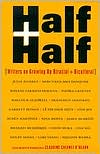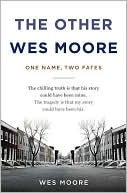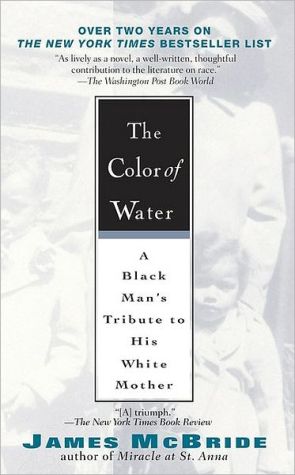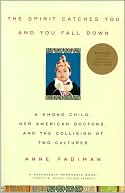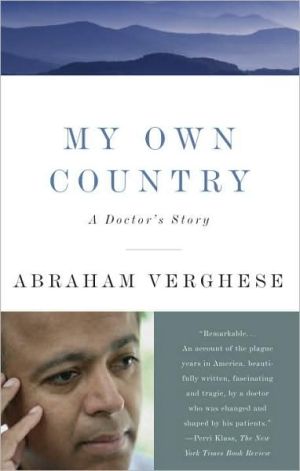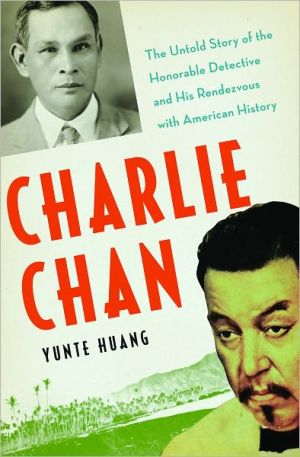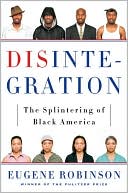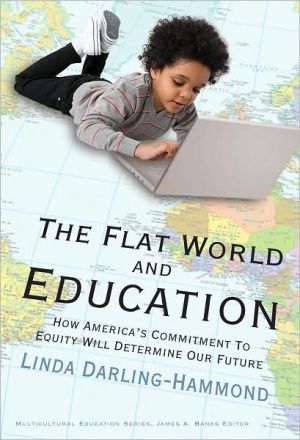Half and Half: Writers on Growing up Biracial and Bicultural
As we approach the twenty-first century, biracialism and biculturalism are becoming increasingly common. Skin color and place of birth are no longer reliable signifiers of one's identity or origin. Simple questions like What are you? and Where are you from? aren't answered -- they are discussed. These eighteen essays, joined by a shared sense of duality, address the difficulties of not fitting into and the benefits of being part of two worlds. Through the lens of personal experience, they...
Search in google:
As we approach the twenty-first century, biracialism and biculturalism are becoming increasingly common. Skin color and place of birth are no longer reliable signifiers of one's identity or origin. Simple questions like What are you? and Where are you from? aren't answered—they are discussed. These eighteen essays, joined by a shared sense of duality, address the difficulties of not fitting into and the benefits of being part of two worlds. Through the lens of personal experience, they offer a broader spectrum of meaning for race and culture. And in the process, they map a new ethnic terrain that transcends racial and cultural division.
Half and Half\ Writers on Growing Up Biracial and Bicultural \ \ By Claudine C. O'Hearn \ Pantheon Books\ Copyright © 1998 Claudine C. O'Hearn\ All right reserved.\ ISBN: 0375700110 \ \ \ INTRODUCTION \ Claudine Chiawei O'Hearn\ I was walking down the street the other day, on my way home from the gym, when a large woman with wiry hair run amok approached me, mumbling to herself and looking somewhat deranged, as only New Yorkers can look. As she neared me, she looked me in the eye and barked, "Half-breed bitch." I had already passed her by the time I figured out what she had said. Shocked, my first reaction was a mix of surprise and even pleasure: "How'd she know? What gave it away?" It wasn't until a block later that I became enraged and thought of a witty retort.\ I stopped being American when I first came to the States to live eight years ago. Growing up in Asia, I knew being mixed set me apart, but I didn't have to name it until people began to ask, Where are you from? My father was raised in a working-class Irish American family in Fall River, Massachusetts. My mother was born near Shanghai, China, but when she was seven, on the eve of the communist revolution, she and her family fled to Taiwan. They met, romantically, and I think aptly, on an airplane (my mother was a flight attendant) andsoon married--though not without first encountering resistance. My father's family were familiar with only stereotypes of Asian women, and so were not eager to invite China into the O'Hearn fold. My mother's family felt the same and took it a step further by hiring a private detective, who fortunately was unable to dig up anything incriminating about my father. Both sides eventually got over it, so we can laugh about it now, and frequently do. Following my mother's example, both of her sisters married Caucasians, creating a whole generation of hapas (Hawaiian for half) in our family.\ My parents settled in Hong Kong, where I was born, and moved to Singapore, Belgium, and Ohio and finally settled in Taiwan. I consider these all to be home, with the exception of Akron, Ohio, where I experienced my first sting of racism when preschool classmates pushed me off playground slides, pulled tight their eyes, and idiotically chanted, "Ching, Chang, Chong, Chinese." Early learners. As coached by my mother, I retorted, "Chinese are better." But since these places are all home, they forfeit their definition as a single place I can come from. Suspended, I can go anywhere but home.\ I don't look especially Chinese--my eyes are wide and lidded, and my hair has a Caucasian texture and color. When my mother and I walked together, people would stare, often rudely. I could see questions in their curious looks: "Is this your daughter?" We looked incongruous. It never occurred to me that my mother and I looked any more different than any other mother and daughter; and even if we did, that it would affect how we related to each other. I don't think I minded so much because I assumed that I would find a home in the States when I went there for college. To me, America was summer vacations; getting up at six in the morning to watch Scooby Doo and the rest of the Saturday morning cartoons; eating Pop Rocks and macaroni and cheese (which I would inhale in large amounts); and best of all, shopping at the mall. Coupled with what I saw in the movies, this was my small window into American life.\ Because most people didn't know where to place me, I made up stories about myself. In bars, cabs, and restaurants I would try on identities with strangers I knew I would never meet again. I faked accents as I pretended to be a Hawaiian dancer, an Italian tourist, and even once a Russian student. It always amazed me what I could get away with. Being mixed inspired and gave me license to test new characters, but it also cast me as a foreigner in every setting I found myself in.\ My brother looks Chinese--70 percent to my 30 percent. And though he might dispute this, I have always felt that he was more readily accepted as being Chinese. I resented him for the ease with which he could slip into the culture, whereas I had to constantly prove and explain myself. I remember how during Chinese New Year, as tradition, we would go from house to house, eating large meals, playing mah jong, and collecting red envelopes containing untold amounts of cash that would later be gambled away. I dreaded these occasions because I felt excluded, whereas my brother, it seemed, was welcomed. Questions about what he planned to do with his life, when was he going to find a girlfriend, etc., were asked of him, while I was mostly treated with polite comments about the style of my dress and carted off to watch TV. I'd sit in the corner, grumbling as I snacked on M&Ms and watermelon seeds and watched badly dubbed American movies. My parents were exasperated by my long face and didn't understand why I was bothered even as they had me pegged as the American one. My mother accused me of not dating Chinese guys as proof of my being Americanized. Of course when I did eventually date one, she didn't approve of him because he wore an earring, dressed all in black, and was known to smoke cigarettes. My decision to study in Ireland on a semester abroad rather than in China, a country I have yet to visit, seemed to further confirm my predilection. I defended my choice because it conveniently fit my English major and why wouldn't I want to explore my Irish heritage. Truthfully, I was afraid to go to China because it was foreign to me. This may seem absurd considering that I had been living in Taiwan for over ten years, but I knew it would require something of me that I was not prepared to give. I wasn't ready to take that journey yet. During the time I lived in Taiwan, China had seemed forbidding--I remember hearing stories about people we knew going and being detained for long periods of time. It wasn't until after I left for college that government restrictions preventing travel between the two countries were relaxed.\ But then I would also benefit from the privileges of being an American. I remember how I would bypass long lines and the price of admission at nightclubs that welcomed foreigners, while my brother had to present a passport as proof of his citizenship. Even though I attended an international school, my friends fell into two groups--the Asians and the foreigners. The biracials blended in both directions, moving between the groups, though always somewhat outside each. Looking back, I think the distinctions came more into focus as we grew older. I remember once one of my American friends let slip a racial slur, something about irreputable, gold-digging Chinese women trying to trap Western men. Appalled, I pointed to my face--the product of such "unholy" joinings. She responded, "Oh, you're not really Chinese"--as though this were a plus.\ When I came to the States for college, I became another sort of expatriate. Since I lacked the cultural tools necessary to roam undetected (knowledge of key television shows, important cultural references, even the subtle nuances of American English that you miss out on when you grow up abroad), I had to fake it and laugh at jokes I didn't get. Luckily I was familiar with The Simpsons, had seen almost every episode of The Love Boat on videotape, and vaguely knew who Howard Stern was. I got tired of hearing, "Oh, you wouldn't understand, you're not from here."\ Toward the end of my first year, I went to hear Angela Davis speak. In making a point about the racism and inequality of the American educational system, she asked the white students to raise their hands if they had taken a course in black/Asian/etc. studies. A few proud students lifted their arms, and I was one of them. Then she asked the students of color to raise their hands if they had taken a course that focused on white/Western studies. Every one of them raised their hands, and the point was made. One was made for me as well, for I had hesitated, unsure whether to join them, although I wasn't sure why I assumed I belonged to the first group any more than the second. I ended up raising my hand for both, looking around to see if anyone noticed. I realized that although I had been making a point all year of letting people know that I was Chinese and enjoyed surprising them, I had learned to believe that I was American/white--I didn't differentiate. Could I be both, or did one trump the other?\ It's easier to be white. To be Chinese, to be half Chinese, is work. I often find myself cataloguing my emotions, manners, and philosophies into Chinese and American, wary if the latter starts to outweigh the former. Three points Asia. How can I be Chinese if I prefer David Bowie to Chinese pop, if I can more easily pass as an American, if I choose to live in New York and not return to Asia where my family still lives, if English is my first language and Chinese remains a distant second? How can I be Chinese when I struggle to communicate with my grandparents? I am unable to tell them about friends, boyfriends, life-altering experiences, beliefs, new jobs---to tell them about my life and who I have become--and the result is they don't really know me. I'm ashamed to admit that there have been times I dreaded visiting them because of the humiliation of having to resort to hand gestures and second-grade Chinese.\ And yet I play the part of a foreigner here all the time. I insist on not being American and tell people about the various customs that are foreign to me--Thanksgiving Day turkey and football, milk shakes, It's a Wonderful Life at Christmas, and fireworks on the Fourth of July. I remember once I got carded when I was an underage summer school student at Tufts University trying to get a drink at a T.G.I. Fridays in Boston. Undaunted, I decided to try a different tactic and responded, in exchange-student-accented English, "Ah, we do not have IDs in China. I do not understand your strange customs." The waitress looked baffled, but I still didn't get any rum in my Coke. When I visit my American cousins, though they are welcoming, I can't help but notice that familial ties don't wash over cultural differences. Sometimes, when I would visit for more than a couple days, I would start speaking with a grossly exaggerated Boston accent, in an attempt to get whitified and bridge the gap. By sharing an accent, perhaps I could be more a part of the family and share their history. Very rarely do the two families come together, and when they do, it is a jarring family portrait.\ I think back to what my mother replied when I asked her if it bothered her that I looked so Western, so not-Chinese. What did she think when she looked at me? With seemingly uncomplicated conviction, she told me that she didn't care because she didn't break me down into Chinese and American. "I see my daughter, finish your dinner." Ultimately, I think she is right, for racial and cultural identity becomes an inherent sum of who you are and what your experiences have been. But I question how much she really believes what she says. My parents' difficulty with my recent choices of partners has exposed their belief that I will marry a Caucasian and that my brother will marry a Chinese, an assumption based on some vague and undefinable notion of what we look like and how they see us. My brother, it happens, is dating a Chinese woman, whose parents, ironically, don't approve of him because he isn't Chinese enough. "Why make life harder for yourself than it has to be? Different cultures will make marriage difficult," is what my father says when he sees me getting angry. Exasperated, I point to his own marriage as a sign of his illogic. "Have you forgotten that you're married to a Chinese woman?" But more important, I wonder whose racial and cultural background will match my own. I get silence for an answer.\ For those of us who fall between the cracks, being "black," being "white," being "Chinese;" being "Latino," is complicated. These essays, exemplary of the legion meanings of race and culture, are about inconstant categories and shifting skins. Skin color and place of birth aren't accurate signifiers of identity. One and one don't necessarily add up to two. Cultural and racial amalgams create a third, wholly indistinguishable category where origin and home are indeterminate. And yet, I am also reminded of a comment made by a notable mixed-race fiction writer in response to Tiger Woods's declaration of his Asian and black heritage (and I paraphrase): "When the black truck comes around, they're gonna haul his ass on it."\ What name do you give to someone who is a quarter, an eighth, a half? What kind of measuring stick might give an accurate estimation? If our understanding of race and culture can ripen and evolve, then new and immeasurable measurements about the uniqueness of our identities become possible.\ \ Continues... \ \ \ \ Excerpted from Half and Half by Claudine C. O'Hearn Copyright © 1998 by Claudine C. O'Hearn. Excerpted by permission.\ All rights reserved. No part of this excerpt may be reproduced or reprinted without permission in writing from the publisher.\ Excerpts are provided by Dial-A-Book Inc. solely for the personal use of visitors to this web site. \ \
IntroductionLost in Place1The Mulatto Millennium12The Double Helix28California Palms38Moro Like Me49The Road From Ballygunge71Reflections on my Daughter80Life as an Alien99Lost in the Middle112The Funeral Banquet125A White Woman of Color139A Middle Passage150Food and the Immigrant170What Color is Jesus?181Postcards from "Home"197From Here to Poland216Technicolor245An Ethnic Trump265About the Authors269
